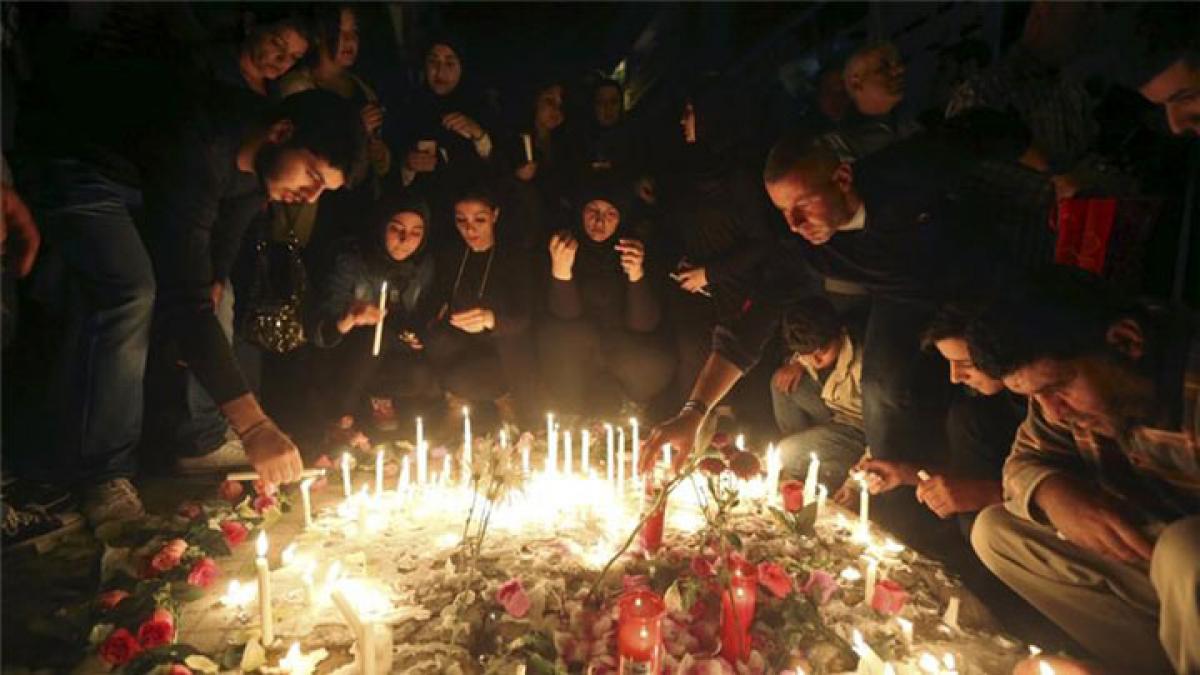Live
- TDP achieves milestone with 73 lakhs membership registration, says Chandrababu
- South Korea: Main Oppn hails Yoon's impeachment motion passage as 'victory for people, democracy'
- RG Kar issue: Tension flared over parallel protests by Congress, SUCI(C) outside CBI offices
- After furore, Central Railway revokes order to raze Lord Hanuman Temple at Dadar
- Now hoteliers' body in Bengal's Alipurduar shut doors for Bangladeshi tourists
- District Collector Encourages Students to Utilize Government Facilities for a Better Future
- Per capita availability of fruits, vegetables increases in India
- FII buying reaches Rs 22,765 crore in Dec as economic growth stays resilient
- National Energy Conservation Day 2024: Date, Importance, and Easy Ways to Save Energy
- Gastronomic trouble: After 'disappearing' samosas Himachal CM in row over red jungle fowl





.jpg) But that image of solidarity after last week's Beirut bomb attacks (43 killed, 240 injured in IS suicide attacks) proved to be a digitally altered fake, underscoring the double standard that lurks beneath the myth of global compassion for victims of such attacks.
But that image of solidarity after last week's Beirut bomb attacks (43 killed, 240 injured in IS suicide attacks) proved to be a digitally altered fake, underscoring the double standard that lurks beneath the myth of global compassion for victims of such attacks.



